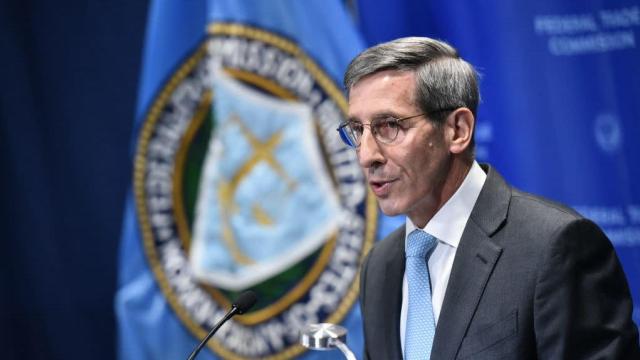Adding to the already-considerable interest in antitrust enforcement against major U.S. tech companies, the U.S. Federal Trade Commission announced a Special Order on Wednesday demanding information from Apple, Alphabet/Google, Amazon, Microsoft and Facebook about their mergers and acquisitions over a ten year period.
Although at this time the primary intention of the FTC is to perform research into these companies, on a press call this afternoon Chairman Joe Simon stated unequivocally that the findings may well lead to legal enforcement options, including the unwinding of various assets.
“This is a research and policy project. The responses to these orders help us better understand whether federal antitrust agencies are getting adequate notice of potentially anticompetitive transactions,” Simon told reporters. “We heard about tech platforms’ acquisitions of nascent or potential competitors during several sessions during last year’s hearings on competition and consumer protection in the 21st century. This study is part of a follow-up from those hearings.”
Apple and Google have roots stretching back to the mid-1970s while the youngest of them, Facebook, was founded in 2004. Still, the Commission has chosen January 1, 2010 to December 31, 2019 the timeframe of its inquiry. According to Simon, “ten years was consistent with a large volume of their acquisitions, and also consistent with the period in which some of the acquisitions that we’d heard about [in the Congressional sessions] raised competitive concerns.”
According to acquisition data available on Crunchbase, these five companies gobbled up 460 outside firms during the FTC’s period of interest, with Google responsible for 181 of them by itself. It’s not clear how many of these would have been reportable under the Hart”Scott”Rodino (HSR) Antitrust Improvements Act”a 1976 law which requires the FTC and Department of Justice to halt and examine large trades for potential antitrust violations.
The HSR threshold”which is based on metrics like sales, assets, or stock value of the parties involved”has changed since 2009. But regardless of which statute was in place at the time, the FTC stressed, some of these trades may have been subject to various exemptions.
Because companies of this scale hold a variety of interests, it’s somewhat difficult to define what exactly would qualify as a competitor, and the FTC appears to be in the early stages of making those key determinations. “We don’t have, right now, a narrow definition of who’s a competitor, who’s a potential competitor,” Simon told Gizmodo. “There’s a good chance that a number of these acquisitions will be of fairly new companies where it’s not clearly established whether they’re horizontal, vertical, or even the strength of their future competition.”
While unwilling to share exact timelines on when Apple, Amazon and the rest were required to respond by”or when the FTC’s report would be completed for that matter”Simon was adamant that the agency was on a “fairly quick” timeline. The fact-finding boon resulting from this Special Order most likely would not be sharable with the state Attorneys General, for their respective antitrust investigations into these same companies, unless the FTC also chose to take enforcement actions.
We’ve reached out to Apple, Amazon, Facebook, Google, and Microsoft for comment and will update if we hear back.
